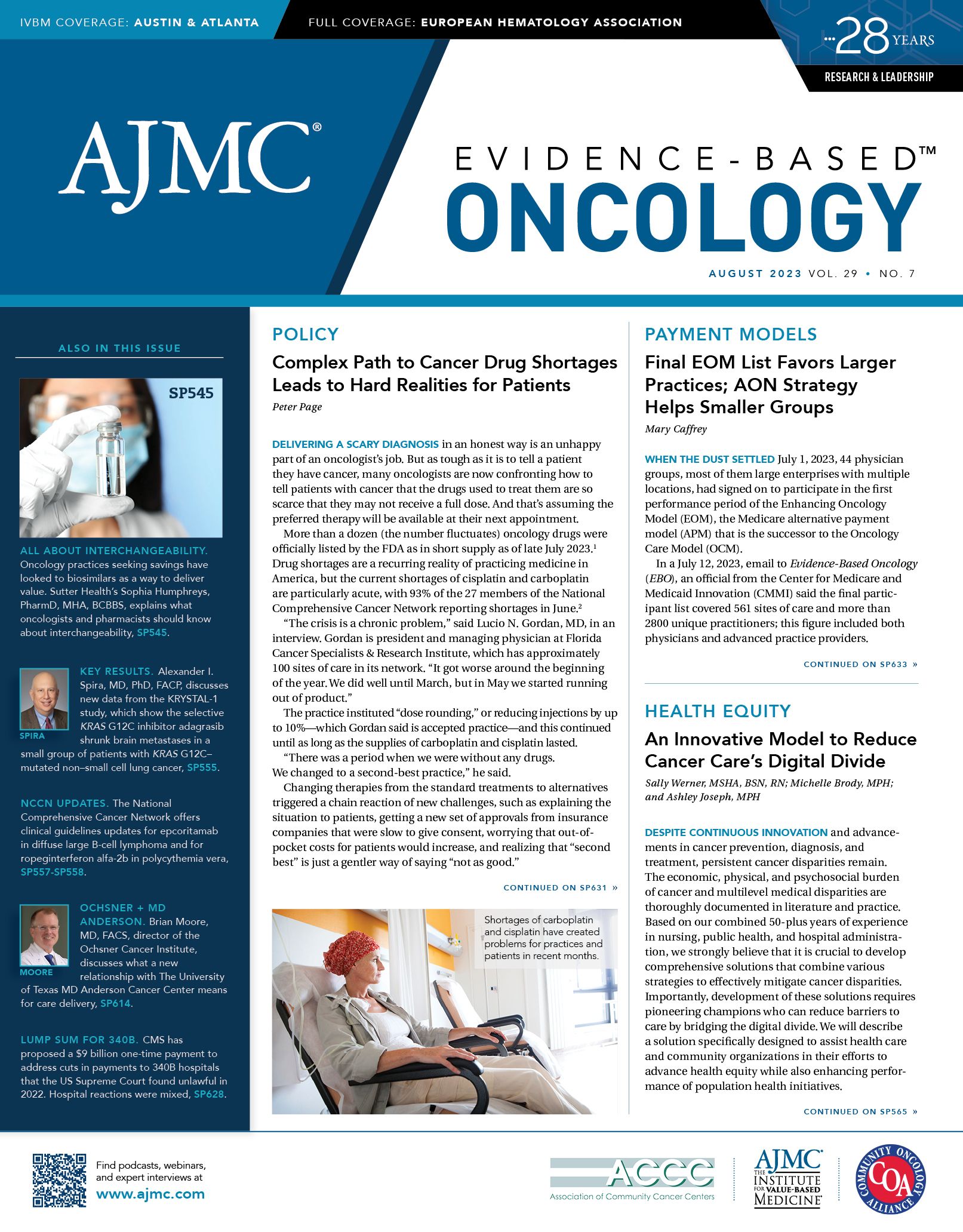- Center on Health Equity & Access
- Clinical
- Health Care Cost
- Health Care Delivery
- Insurance
- Policy
- Technology
- Value-Based Care
FROM THE EDITOR IN CHIEF: For the Want of a Nail
…for the want of a nail, the shoe was lost
For the want of a shoe, the horse was lost
For the want of a horse, the rider was lost
For the want of a rider, the message was lost
For the want of a nail, the world was lostTodd Rundgren’s 1989 hit, For the Want of a Nail, details an absurd set of escalating events that culminate in the end of the world. As we look across
Alvarnas

the increasingly complex cancer care landscape, it seems that more than a few nails are missing. The scope of lost opportunities across the breadth of care disparities, the impact of unforeseen drug shortages, and the growing unsustainability of the administrative burden cast upon physicians challenge even the most optimistic amongst us to remain so. Unfortunately, these complex systems often lack the resilience to navigate unforeseen circumstances or manage the consequences of government and payer policies, however well-intentioned. In truth, when we face seemingly insurmountable challenges, we must embrace a greater sense of humility about our ideas on how this will work.
Recent drug shortages remind us that the biggest blows come from the unforeseen threat. How can it be than in 2023, as cancer mortality plummets, that the failure of a single manufacturing facility can compromise our systems of care? No medical school student worries about supply chains, yet our ability to deliver optimal patient care relies upon a multitude of events beyond our direct control.
Our health care system didn’t evolve to serve every Immediate need, and point solutions are frequently the core drivers of why medical systems look the way that they do. The American health care system leads the world by creating innovations, and early adoption of these novel technologies can improve patient outcomes. The advantages of our care system, however, will not make its shortcomings disappear. Technology alone will not save us. The biggest disconnects in our systems of care involve handoffs, transitions, and misalignments between systems capacities, clinical resources, and patient needs.
What is the way forward? While the seemingly contradictory missions of delivering higher quality care while leveraging a rapidly growing portfolio of emerging diagnostic and therapeutic technologies to deliver care at a lower cost and in ways that improve patient care experience seems impossible, leaders in the field show us how effective care strategies, technological tools, and patient-centered care can move us toward this ideal state.
Apeirophobia is the fear of infinity. It is easy to look at the near infinite challenges that confront us as we create the future of oncology and become overwhelmed to the point of near paralysis by the enormity of the tasks that lie ahead. Yet success is never accidental, and it is rarely achieved in isolation. The best prospects for building the most resilient future possible for oncology lies in better aligning the breadth of oncology care stakeholders in ways that enhance collaboration and cross-disciplinary learning, while ensuring that the drive the reduce costs does not lead us to underinvest in what it takes to do so sustainably.
Reference
Todd Rundgren. For Want of a Nail. Nearly Human. Warner Records. May 18, 1989.

